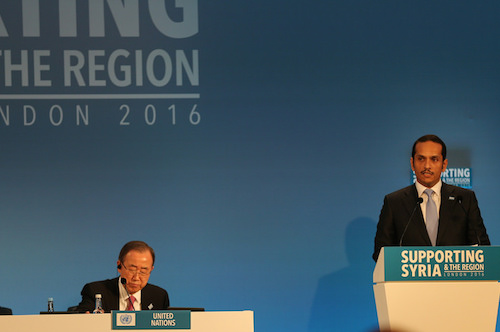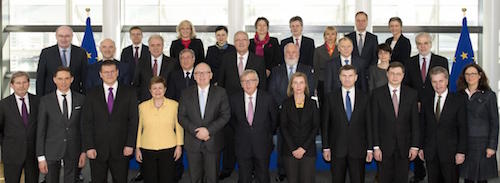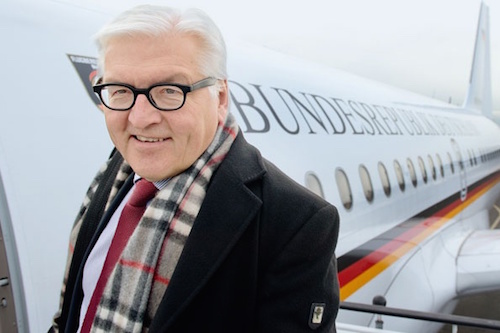
Send a message to the people who can make education in emergencies happen
Education funding, Education in emergencies
The power to change the lives of millions of children lies in the hands of a group of international leaders.
They can ensure that the new Education Cannot Wait fund delivers on its promise – to give safe schools to girls and boys caught up in humanitarian emergencies.
The fund will be launched at the first World Humanitarian Summit in Turkey in two weeks. It’s a great achievement – but only if the words and good intentions are backed up with sollid commitments and money.
The people listed represent the countries and organisations with the heavyweight financial clout needed to make that happen and ensure the target is met, raising almost $4 billion to reach 13.6 million children within five years.
Children whose education and futures have been disrupted by emergencies including conflicts, natural disasters and health crises. Until now, humanitarian aid has always centred on providing food, shelter and accommodation. Less than 2% of aid last year was spent on education.
But now the world is waking up to the fact that children in emergencies urgently need safe places to play and learn. They need to get back into school to help them recover from the trauma and stop them falling prey to child labour, child marriage, trafficking, recruitment into armed forces, abuse and exploitation.
You can help to make that happen by making your voice heard. Send a message to these leaders that Education Cannot Wait. Below are the Twitter addresses you need to tell them they must match promises with action. And you can also sign the #SafeSchools petition.
JUSTINE GREENING (United Kingdom)
The government minister in charge of Britain’s Department for International Development (DFID). The UK is giving $770 million to aid education projects across the world in the 2016-17 financial year.
GAYLE SMITH (United States)
Administrator at the US Agency for International Development (USAID). The US became the leading biltateral donor to education in 2014.
BORGE BRENDE (Norway)
Foreign Affairs Minister. Norway hosted the Oslo education summit last year, where world leaders agreed in principle to set up a fund for education in emergencies.
FRANK-WALTER STEINMEIER (Germany)
Foreign Affairs Minister whose country took in more than one million refugees last year. At the Supporting Syrian conference earlier this year, Germany pledged give $2.5 billion in humanitarian aid by 2018.
ISABELLA LOVIN (Sweden)
Minister for International Development Co-operation. Sweden was one of only four countries to increase its funding to basic global education by more than 40% lbetween 2013 and 2014.
MARIE-CLAUDE BIBEAU (Canada)
The Minister for International Development. Last month Canada announced US$77 million in new humanitarian funding for people affected by the Syrian conflict.
JULIE BISHOP (Australia)
The Minister for Foreign Affairs. Australia was another country that increased its aid to education by more than 40% between 2013 and 2014. But last week it announced its international budget would be cut by US$164 million to US$2.8 billion in 2016-17.

H.E. MOHAMMED BIN ABDULRAHMAN BIN JASSIM AL-THANI (Qatar)
The foreign affairs minister is seen here at the Supporting Syria conference in London earlier this year. Much of Qatar’s humanitarian aid funding goes to Arab world crises such as Syria, Gaza and Yemen.
ANDRE VALLINI (France)
Minister of State for Development. As a new minister, he has the potential to be a major leader in education in emergencies.
LILLIANE PLOUMEN (Netherlands)
Minister for Trade and Development Co-operation. The Netherlands reduced its humanitarian aid to education by more than 40% in 2014.
JIM YONG KIM (World Bank)
President of the World Bank, which gives loans to developing countries. Its official goal is to reduce global poverty – but it also aims to end inequality.

EUROPEAN COMMISSIONERS
When the European Union received the 2012 Nobel Peace Prize, it used the prize money to create the EU Children of Peace initiative to support safe access to quality education and psychosocial support for children in emergencies. By 2013, it was giving $4.5 million per year.
More news


